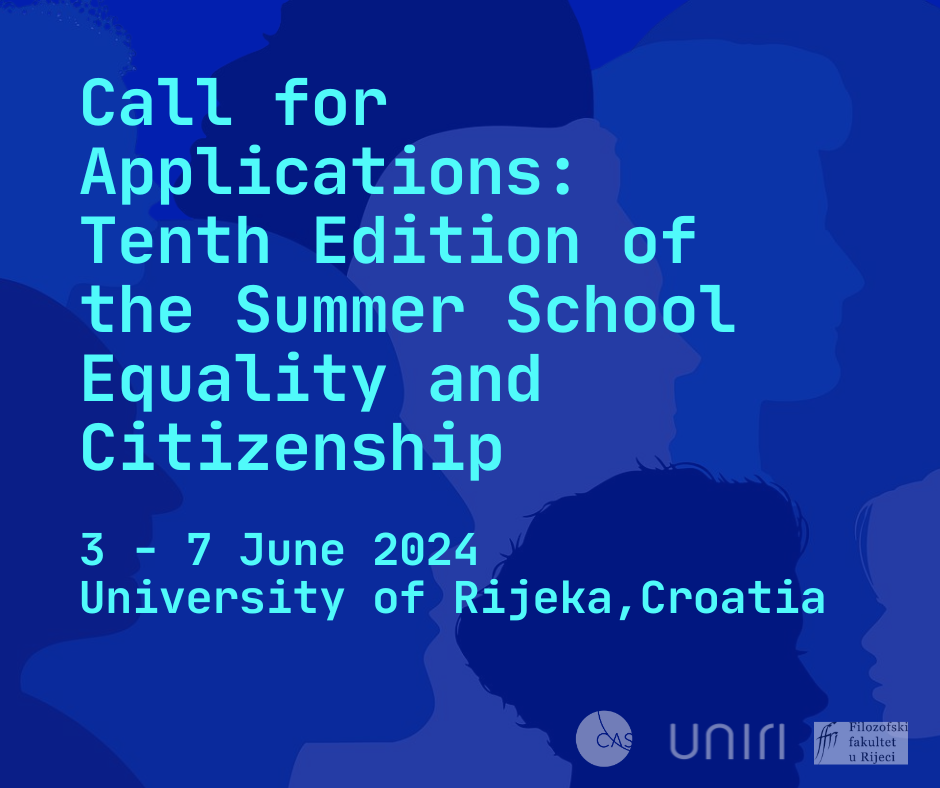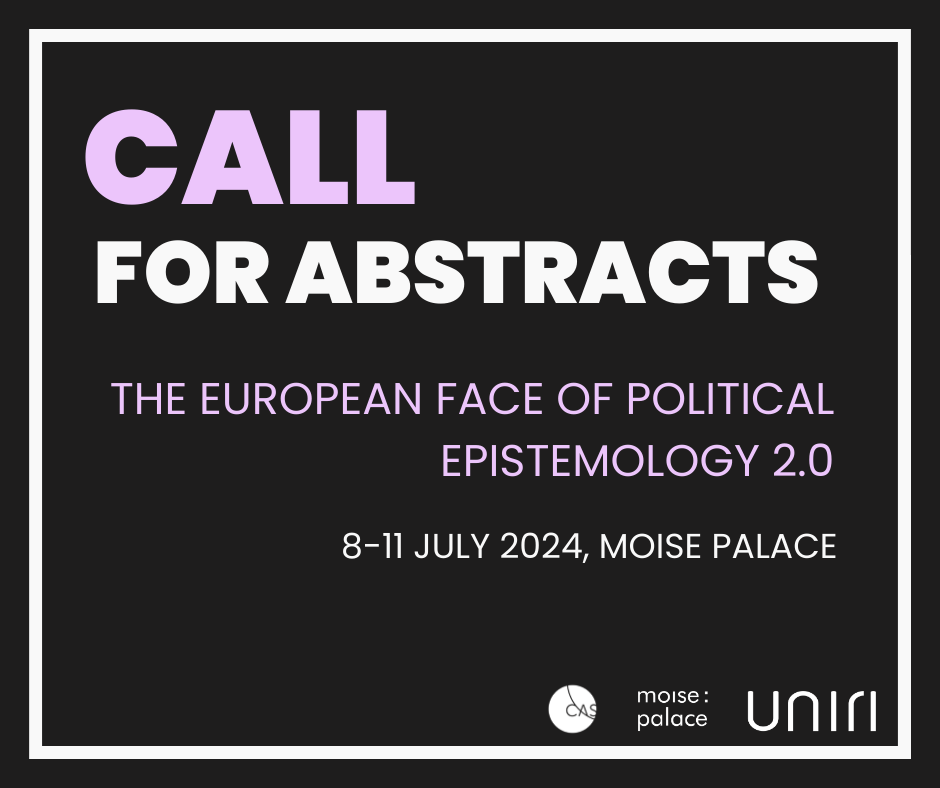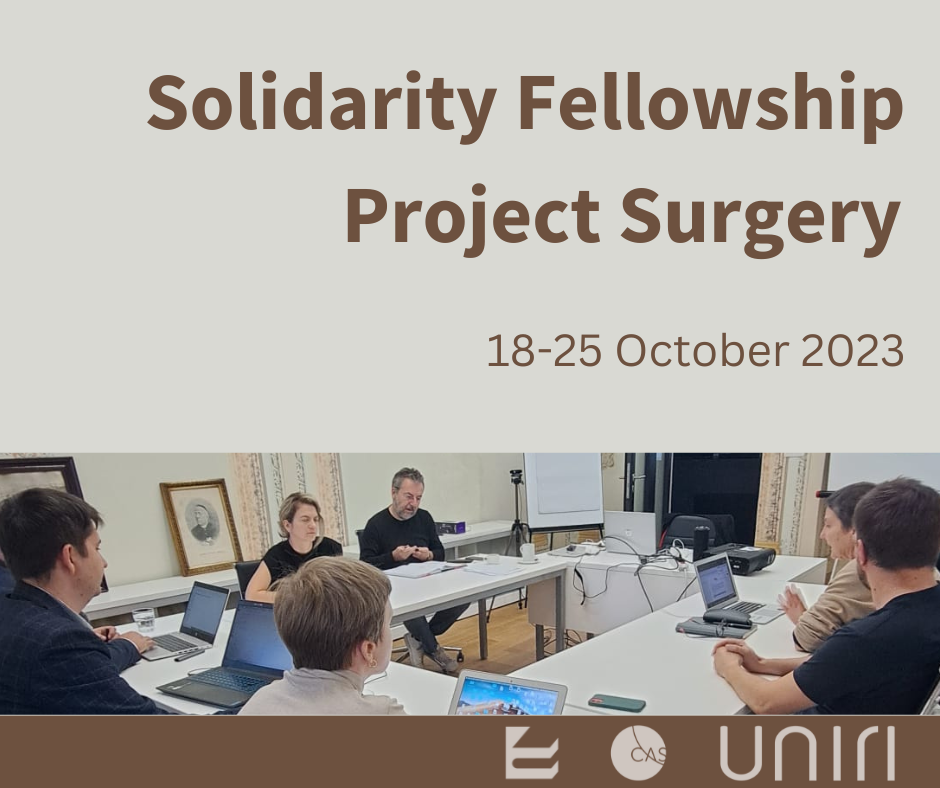2018 CAS SEE Summer School
Rijeka, June 18 – 22, 2018
Guest lecturers:
Judith Butler (Berkeley University)
Hervé Le Brass (Ecole des Hautes Etudes en Sciences Sociales, Paris)
Peter Fenves (Northwestern University)
Alexis Nuselovici-Nouss (University of Aix-Marseille, Fondation Maison des sciences de l’homme)
Astrid Deuber-Mankowsky (Ruhr University Bochum)
Marc Crepon (Ecole normale supérieure, Paris)
Rationale and background:
The 2018 CAS SEE Summer School examines one of today’s most pressing topics: how to think and what to do with violence in our present society. To what extent is it possible to deconstruct and name emerging mechanisms of violence? What are the kinds of phenomena that escalate coercion and violence, making it difficult to either contain them or to work out feasible alternatives? Assuming that violence in the various social contexts is not a self-contained, but rather a relational/social phenomenon (across various social entities and institutions such as families, associations, corporations, nations, states, religions), is there any social purpose of violence, and is there any productive alternative to violence? Is violence a form of communication, and are there substitutes in terms of strategies of communication that might non-repressively reduce the recourse to violence?
Southeastern Europe has seen more than its share of violence, as well as of anti-violence ideology over the past several decades, propagated both by the states and governments and by civil society organizations and various sections of the society. The region has seen the adoption and implementation of various EU laws and policies to a far greater and more extreme level than they were implemented in their countries of origin. The trend is partly a symptom of identity crisis and identity insecurity, where policies are designed to curtail all kinds of violence in society, shifting power towards every increasing prerogatives of the administration. Every instance of violence tends to be interpreted as a systematic social degeneration, which needs to be uprooted by draconian control and repressive policies. The results include an extremely powerful police force and state institutions with sweeping authority over individual citizens, and an increasing apathy and defensiveness by the ordinary people. Thus the study of violence as well as anti-violence policy addresses a core issue for the quality of life in Southeastern Europe.
“Critique of Violence Now” will:
- Provide a framework for exchange of views and insights among activists and academics on following topics: Political Violence, Administrative Violence, Legal Violence, Domestic Violence, Collective Violence in the regional and global context, Countering (discourses of) violence through social engagement, Social inequalities and neoliberal conquest of state and society;
- Inspire and build capacity of participants through stimulating topical and theoretical input by renowned academics, creating opportunities for building networks and joint cooperation actions in the field;
- Provide workspaces for the participants to discuss and work on short papers (app. 3 pages) dedicated to four major clusters: “Political Violence: Revisited”; “Administrative Violence: Migration”; “Ethnicized and Racialised Violence”; “Deconstructing Misogyny and Patriarchy”. Papers (in English) would be further refined immediately after the Summer School and published in a volume edited by the Institute for Philosophy and Social Theory University of Belgrade.
Technical information and application procedure:
The official language of the Summer School is English.
The Program Committee of the 2018 CAS SEE Summer School will select the presenters based on the submitted abstracts responding to four Clusters:
- “Political Violence: Revisited”;
- “Administrative Violence: Migration”;
- “Ethnicized and Racialized Violence”;
- “Deconstructing Misogyny and Patriarchy”
We kindly ask you to put the following title in your email subject: ‘Name: title of the paper’. The complete application should be submitted in.doc or .docx format, and must contain: the title of the presentation, an abstract of up to 200 words, key words and a short biography in English.
Summer School applications should be sent only via e-mail to the following address: cas@cas.uniri.hr
Deadline for abstracts is 31st March 2018.
It is expected that the participants submit their full papers before 1st June 2018.
2018 CAS SEE Summer School Full Registration Fee is 125 Euros; Student Registration Fee is 50 Euros.
Payment is due before 1st June 2018.
The Summer School hosts offer reception and the ticket entrance for the theatre performance on June 18th in the evening, and provide refreshments throughout the duration of the Summer School program.
Important dates:
Application deadline: 31st March 2018
Notification of acceptance: 30th April 2018
2018 CAS SEE Summer School dates: 18th–22nd June 2018
Program Committee:
Astrid Deuber-Mankowsky; Ruhr University Bochum
Petar Bojanic; IFDT University of Belgrade / CAS SEE University of Rijeka
Vedran Dzihic; oiip / CAS SEE University of Rijeka
Manuela Bojadzijev; Humboldt University
Sanja Bojanic; CAS SEE/CWS, University of Rijeka
Adriana Zaharijevic; IFDT, University of Belgrade
Gazela Pudar Drasko; IFDT, University of Belgrade
Organization Board:
Mónica Cano Abadía, Kristina Smoljanovic (CAS SEE University of Rijeka)
For information on the time schedule, organization and future events, please follow us at the official website and the Facebook page.
If any further details are needed, please contact us at: cas@cas.uniri.hr




